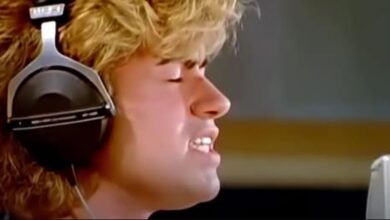The Beatles’ Bold Message in “Revolution”
“Revolution” is a seminal rock song by the legendary British band The Beatles. It was released in 1968 as the B-side of the “Hey Jude” single and later appeared on their self-titled double album, commonly known as “The White Album.” The song is celebrated for its raw, politically charged lyrics, its high-energy rock sound, and its role in reflecting the tumultuous cultural climate of the late 1960s.
Musically, “Revolution” is characterized by its energetic and driving rock sound. The song features John Lennon’s powerful and passionate vocals, accompanied by distorted guitars played by both Lennon and George Harrison. The arrangement includes a relentless rhythm section, creating a sense of urgency and rebellion that matches the lyrical themes.
Lyrically, “Revolution” is a bold and confrontational song that addresses political and social issues of the time. The lyrics question the effectiveness of non-violence and advocate for more radical forms of change, with lines like “But if you go carrying pictures of Chairman Mao, you ain’t gonna make it with anyone anyhow” expressing skepticism about certain political ideologies. The song’s message reflects the countercultural spirit of the era and the desire for societal transformation.
“Revolution” became an anthem of the protest and anti-establishment movements of the late 1960s. It received extensive radio play and sparked discussions about the role of music in politics. The song’s raw intensity and confrontational lyrics resonated with audiences, making it a standout track in The Beatles’ catalog.
While there were different versions of “Revolution” (the faster, more rock-oriented single version and the slower, acoustic version on “The White Album”), both are celebrated for their significance in capturing the spirit of the times. “Revolution” remains an iconic and powerful song that continues to be recognized for its cultural and musical impact.





